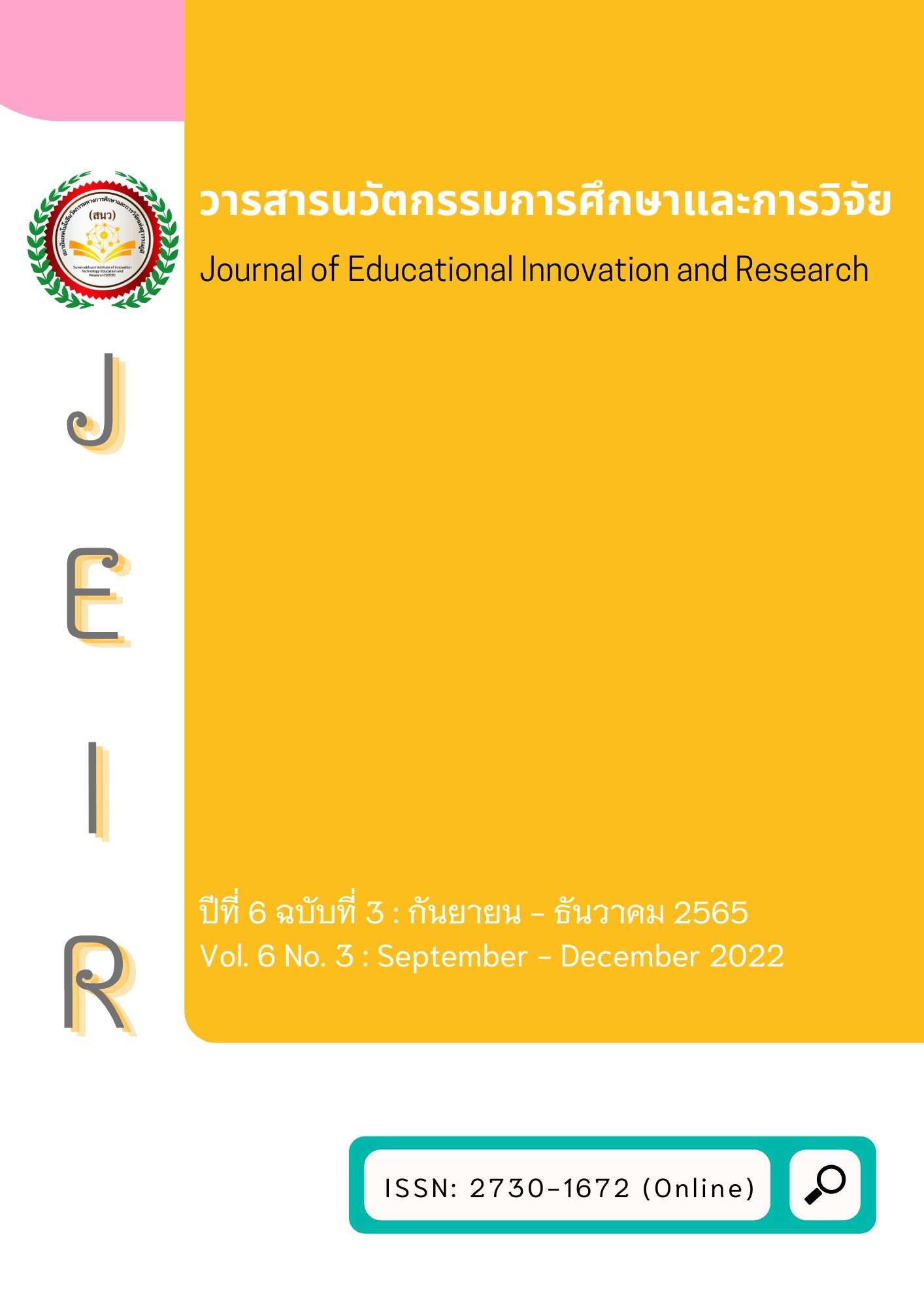Music Education Guideline of Government-Paid Teaching Students, China
Main Article Content
บทคัดย่อ
The purpose of this research was to study the main existing problems funded by the government in Hunan Province, China, and to develop a regular education development plan funded by the government in Hunan Province, China. The data collection tool was an online questionnaire of 425 samples. The research statistics were frequency, mean, percentage, standard deviation, t-test, ANOVA, and multiple regression analysis.
The results of the frequency analysis showed that most of them were "women" and most of them lived in Changde and Xiangxi. The four measurement dimension options, namely local cultural value recognition, local cultural participation, music-cultural curricula connection, and homecoming development stability, were the linkages of local culture. In their frequency analysis of GPTS Cognition of Rural Teachers, almost all of them responded, “To guide students to become better people.” In a consistent, multi-frequency analysis of success, the subjects thought it made them happier. The subjects felt happiest because of “student achievement” and “social acceptance”.
The results of the hypothesis showed that analyzing the influence of the level of identity and the contribution of local cultural values on the degree of association of the local music culture curriculum could be written as follows: Y1= 1.061+0.286*X1+0.365*X2. Analysis of the influence of identity and the contribution of local cultural values on the stability of homeland development, the regression result was Y1= 1.140 = 0.372*X1 + 0.313 X2. Analysis of the influence of the local music culture curricula linkage on the stability of homecoming development, the higher the degree of coherence of the local music culture curricula, the better the stability of the hometown development. The equation could be written as Y1= 1.457 + 0.591*X3.
Article Details

อนุญาตภายใต้เงื่อนไข Creative Commons Attribution-NonCommercial-NoDerivatives 4.0 International License.
เอกสารอ้างอิง
Chen, H. (2006). Research on the status quo of public music education in science and engineering colleges in China. Beijing: Capital Normal University.
Chen, J. (2003). Music literacy and practice. Nanjing: Jiangsu Education Press.
Chinese Academy of Social Sciences. (2012). Compilation of the institute of linguistics, Chinese Academy of Social Sciences: Modern Chinese dictionary (6th ed.). Beijing: The Commercial Press.
Ci, H. (1999). 1999 printed (sound) 3" (5 volumes). Shanghai: Shanghai Dictionary Press.
Dong, B. (2012). Problems in free music education for normal students and countermeasures. Chongqing: Southwest University.
Gao, L. (2007). Paying attention to the basic accomplishment of music. Journal of Chengde National Teachers College, 27(3), 93.
Gude, O. (2004). Postmodern principles: In search of 21st century art education. Art Education, 57(1), 6-14.
He, X. (2009). The status quo and countermeasures of music quality education for non-music students in colleges and universities. Music Education, 4.
Huang, L. (1999). The necessity of improving the music quality of college students from 500 questionnaires. People's Music, 5.
Li, S. (2012). Theoretical and practical research on the cultivation of professional preschool teachers' music quality. Shanghai: Shanghai Conservatory of Music.
Liu, M. (2004). Research on art education in contemporary aesthetic context. Wuhan: Wuhan University.
Ma, L. (2008). On the quality education of colleges and universities. Central Conservatory of Music.
Ma, Q. (2011). Research on the construction of campus music culture in colleges and Universities. Changsha: Hunan Normal University.
Qu, Z. (2019). The improvement of college students' music literacy under the concept of general education. The House of Drama, 12.
Teacher Education Revitalization Action Plan. (2018-2022). Implementation measures for the public education of normal students of the normal university Directly under the Ministry of Education. Universiteiten van Nederland.
Xia, Y. (2004). Interactive research on music education and social music culture. Changsha: Hunan Normal University.
Xia, Y. (2004). Interactive study of music education and social music culture. Changsha: Hunan Normal University.
Yan, X. (2006). On the importance of music literacy in instrumental learning. Little Performer, 6, 46.


